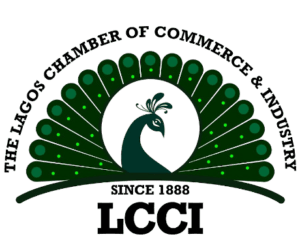

President Tinubu’s 2024 reforms: Reshaping Nigeria’s finances and economic sectors
By Matthew Denis
Under the leadership of President Bola Ahmed Tinubu, Nigeria’s economic landscape in 2024 has been shaped by bold and, at times, controversial policy decisions. From fuel subsidy removals to significant fiscal and monetary reforms, the administration has taken decisive steps to address long-standing economic challenges. However, these moves have sparked mixed reactions, with the outcomes still unfolding.
Fuel subsidy removal and its reversal: A policy u-turn
One of the most high-profile policy decisions made by the Tinubu administration was the removal of fuel subsidies. Announced shortly after his inauguration in June 2023, the move sent shockwaves through the country. In the immediate aftermath, fuel prices surged, leading to a ripple effect on the cost of living, with many Nigerians facing untold hardship. The backlash was palpable, with widespread protests and increased public discontent.
Speculation soon followed, with high-profile political figures, including former Kaduna State Governor Nasir El-Rufai, suggesting that the government was still paying the subsidy despite the official announcement. In a surprising twist, the government quietly resumed paying the subsidy, with reports indicating a monthly expenditure of around N600 billion. This policy reversal has raised questions about the administration’s readiness for such a complex issue, highlighting concerns over hasty decisions and a lack of clear, sustainable direction.
The saga of the fuel subsidy removal and its subsequent reversal underscores the urgent need for a more calculated approach to policy-making—one that prioritises long-term stability over short-term political gains. The Tinubu administration’s handling of this issue will likely serve as a case study in the complexities of managing large-scale economic reforms.
Fiscal and monetary policies: A delicate balancing act
Beyond the fuel subsidy debacle, the government’s fiscal policies have focused on ambitious revenue targets, largely dependent on fluctuating oil prices and successful reform implementation. However, by mid-2024, actual revenue realization averaged less than 70% of the projected targets, pointing to challenges in achieving fiscal sustainability. The government is grappling with a growing budget deficit and rising debt servicing costs, further complicating the financial outlook.
In response, the Central Bank of Nigeria (CBN), led by Governor Olayemi Cardoso, has deployed various monetary policy tools to achieve price stability. Despite these efforts, inflation remains a persistent problem. The CBN has maintained a tight monetary policy stance, which will likely continue until inflation shows signs of a sustained downward trajectory. The central bank’s policy is critical to stabilizing the economy, yet the cost of maintaining such a stance could further stifle growth in the short term.
Exchange rate reforms have also been a significant focus under the Tinubu administration. The unification of the naira’s official exchange rate was aimed at improving foreign exchange liquidity and stabilizing the currency. While these efforts have garnered some positive feedback, they have also exposed vulnerabilities in Nigeria’s reliance on oil revenues, underscoring the need for economic diversification.
Investments, MSMEs, and employment initiatives
The Tinubu administration has made several moves to stimulate economic growth, though results have been mixed. Investments, particularly in the growing ICT and manufacturing sectors, are expected to boost Foreign Direct Investments (FDIs) in 2024. Despite this, the overall growth rate has remained sluggish, with the Nigerian economy projected to grow by just 2.9% to 3.1% in 2024. This modest growth reflects ongoing challenges in the oil sector and the broader economic environment.
Employment remains a major concern, with high levels of poverty and unemployment continuing to plague the country. The administration has introduced several social investment programs aimed at addressing these issues, including cash transfers, job creation schemes, and support for Micro, Small, and Medium Enterprises (MSMEs). A significant intervention here is the N200 billion allocated for MSMEs, which includes conditional grants and loans to support small businesses. However, despite these efforts, food insecurity remains a critical challenge, with many Nigerians still struggling to meet basic needs.
The government has also established initiatives such as the MSME Clinic to provide entrepreneurs with support services, access to finance, and training. These efforts signal the administration’s commitment to fostering a more conducive business environment and promoting economic growth through MSME development.
Tax reforms and social protection programs
The introduction of tax reforms has been another central feature of the Tinubu administration’s 2024 policies. The government has proposed significant changes to Nigeria’s tax system, including the harmonization of taxes and the establishment of the Nigeria Revenue Service. While the intent behind these reforms is to create a more equitable and efficient taxation model, the proposals have sparked controversy. Critics, particularly from northern states, argue that the reforms could disproportionately affect them, shifting a larger share of the tax revenue to southern states. Nevertheless, President Tinubu has remained steadfast in his commitment to these reforms, emphasizing their potential to promote economic growth and eliminate colonial-era tax structures.
In addition to fiscal reforms, the government has expanded social protection programs aimed at alleviating poverty. The Nigeria for Women Programme and the Renewed Hope Initiative (RHI), launched by First Lady Oluremi Tinubu, focus on empowering women, children, and vulnerable communities. These initiatives include a range of activities, from economic empowerment and education to healthcare and social investment. The government has also approved a tax waiver on essential food items and pharmaceuticals to reduce the cost of living and alleviate poverty.
A fragile economic landscape
Despite the administration’s ambitious interventions, Nigeria’s economic trajectory in 2024 remains fragile. The financial sector has been significantly impacted by policy decisions such as the fuel subsidy removal, exchange rate reforms, and tax proposals. While the government has introduced measures to support economic stability and growth, there are concerns about the long-term sustainability of these initiatives.
The Dangote refinery’s efforts to reduce fuel prices and the potential resumption of operations at the Port Harcourt refinery are welcomed developments in tackling fuel scarcity. However, Nigeria’s broader economic future hinges on the government’s ability to balance short-term stabilization with long-term growth strategies. Policy reversals, inflationary pressures, and mounting debt continue to pose serious risks to the economy, and much remains to be done to address these challenges effectively.
Conclusion
President Tinubu’s 2024 economic policies reflect a mix of bold ambition and growing pains. The removal and reversal of fuel subsidies, fiscal and monetary reforms, and investment in social protection programs all illustrate the administration’s efforts to address Nigeria’s economic challenges. However, the country’s financial sector remains on a precarious path, with questions about the sustainability of these policies and their impact on ordinary Nigerians. Moving forward, careful planning and more deliberate execution will be essential to ensuring that these reforms translate into lasting economic stability and growth.




